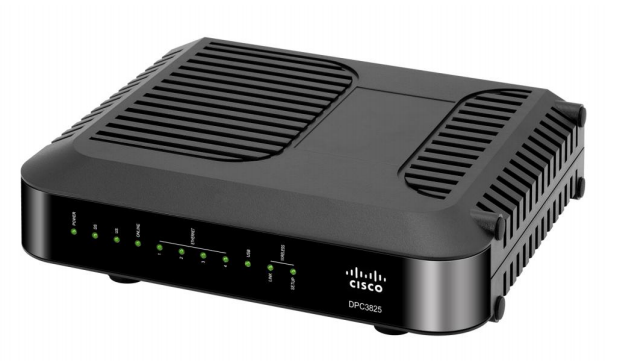
Charter Communications prevented customers from using their own modems for two years beginning in 2012, and as punishment, the company will have to pay a $640,000 fine and complete a three-year compliance plan.
The Federal Communications Commission entered into a consent decree with Charter to settle the commission’s investigation into the matter, and it released the decree on Tuesday.
Charter’s actions were no secret—see this DSLReports article describing the modem ban in June 2012. But Charter—which just got FCC approval to complete a merger that will make it the nation’s second largest cable company—got away with it until the FCC stepped in.
The FCC’s Media Bureau began an investigation in July 2015 after modem maker Zoom Telephonics asked the commission to take action. Zoom also petitioned the FCC in October 2015 to reject Charter’s purchase of Time Warner Cable (TWC) and Bright House Networks.
“The Bureau’s investigation found that for a period of approximately two years beginning in 2012, Charter informed subscribers that they would no longer be permitted to attach new customer-owned modems,” the FCC said. “Charter later provided a list of authorized customer-owned modems, but new modems were only added to the list after passing a number of tests, many of which did not relate to harm to the network or theft of service.” (Charter customers who already used third-party modems before the policy went into place were allowed to keep using them.)
Because of the FCC investigation, Charter is shortening its modem testing period to three weeks. The $640,000 fine will be paid to the US Treasury.
Charter will have to file compliance reports every six months detailing its efforts to let customers attach their own modems. It won’t be a total free-for-all, though. For example, Charter can still prohibit attachment of modems that don’t support version 3.0 or higher of DOCSIS, the Data Over Cable Service Interface Specification. Charter will have to notify the FCC each time it prohibits the attachment of a specific modem and explain why.
Charter doesn’t charge a separate modem rental fee—the cost of a Charter-supplied modem is included in a customer’s monthly bill. Thus, using a third-party modem with Charter doesn’t save a customer any money. But regardless of whether cable companies charge a rental fee, FCC rules prohibit providers from preventing the use of modems except when they cause “electronic or physical harm” or are used for “the unauthorized receipt of service.”
Charter began preventing use of customer-owned modems when it launched new pricing and packages that included the modem at no additional cost. “As a result, we will no longer provision customer owned modems on our network when a customer signs up for Charter Internet service,” a company representative said at the time in a DSLReports thread. “If you are an existing Charter Internet customer and own your own modem, and you are content to stay in your current package and pricing, you can continue to use your modem. If you decide you would like to come to the new pricing, at that point, we will issue you a new Charter modem.”
Charter said it enforced the policy because it wanted to make sure every customer gets “the best online experience possible.” To make that happen, Charter said it needed to provide the modems itself and make sure they all have the most up-to-date firmware.
While Charter finally relented in 2014 and allowed use of third-party modems, the company’s testing program resulted in few options, according to Zoom’s petition to deny the Charter/TWC/Bright House merger. (The merger got the final required approval from California regulators today and is expected to be completed next week.)
“Most of the 22 Charter-certified modem models are unavailable at major brick and mortar retailers, and others are not easily available,” Zoom wrote. “Only three have wireless functionality, and none of them employ the 802.11ac standard.”
The Charter website currently lists 25 approved modems.
This wasn’t the only case of a cable company allegedly preventing attachment of customer-owned devices. A class-action lawsuit against Cablevision accused that company of requiring cable TV subscribers to rent a set-top box in order to receive certain video services. While Cablevision denied the allegations, it agreed to a settlement that offers customers one-time bill credits or payments of $20 to $40, or services valued at up to $140. Current or former Cablevision customers have until September 23 to request bill credits or cash payments.
Disclosure: Bright House is owned by the Advance/Newhouse Partnership, which is part of Advance Publications. Advance Publications owns Condé Nast, which owns Ars Technica. Advance/Newhouse will own 13 percent of Charter after the proposed transactions are completed.
reader comments
64